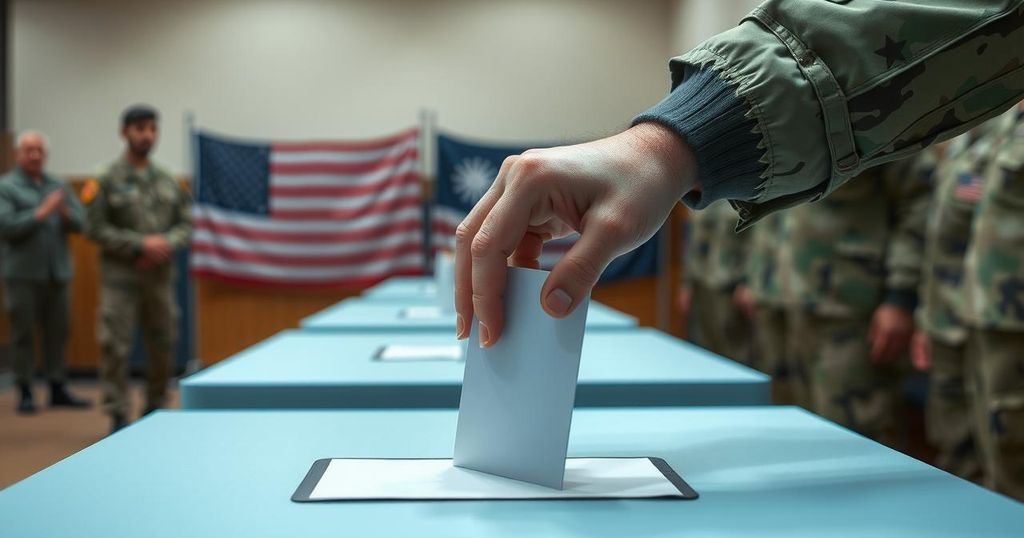Chad’s General Election: A Critical Juncture Amid Opposition Boycotts
Chad held a general election after three years of military rule, with low turnout due to opposition boycott calls. Early reports indicated a 38% participation rate, with calls for vigilance against electoral fraud. The elections are a pivotal moment in Chad’s transition to democracy, amid ongoing socio-political challenges.
On Sunday, Chad conducted a general election amid widespread opposition calls for a boycott, following a three-year period of military governance. Early reports from the elections management agency, ANGE, indicated a turnout of only 38 percent, with officials attributing the low participation to “cold weather”. However, opposition leaders, including Succes Masra of the Transformers party, asserted that voter apathy stemmed from a predetermined election outcome and urged citizens to abstain from voting.
Candidates loyal to President Mahamat Idriss Deby Itno, who ascended to power in 2021 after a military takeover, were positioned to benefit from the boycott. President Deby encouraged voters to engage in the electoral process, calling it a “historic day”. Opposition figures alleged electoral malpractice, with Masra claiming that “the fabricated results are already in the computers”.
Several local residents, including construction worker Herve Natouingan, expressed their skepticism about the election’s effectiveness, while Patrice Lumumba Deoumoundou, a 39-year-old seeking change, voiced hope for improved living conditions. Simultaneously, the election management agency reported high voter turnout within military and nomadic groups, suggesting local stakes in the elections were significant.
With challenges such as ongoing jihadist threats and accusations of government interference in regional conflicts, the elections were heralded as a critical step toward democratic transition. This period marked the conclusion of military rule following the death of the previous long-time leader, Idriss Deby. The ultimate impact of the election on Chad’s political landscape remains to be seen, particularly as opposition parties raise concerns over electoral integrity and governance.
Chad has experienced significant political instability, particularly after the death of long-term President Idriss Deby in 2021, which led to a military-led government under his son. The recent general election is viewed as a pivotal moment in the country’s progression towards restoring democratic governance following years of military rule. The political landscape is characterized by a fractured opposition that has repetitively challenged the legitimacy of the ruling party, while socio-economic factors and security concerns have exacerbated public distrust in the electoral process.
The recent general election in Chad has highlighted significant public discontent and skepticism regarding the electoral process amidst a backdrop of military rule. Low voter turnout, largely attributed to opposition calls for boycotts, raises questions about the legitimacy of the forthcoming results and the future of democracy in Chad. As the nation grapples with pressing socio-political issues, the transition from military to civilian governance remains a contentious and complex endeavor, requiring genuine electoral engagement and reform.
Original Source: www.rfi.fr




Post Comment